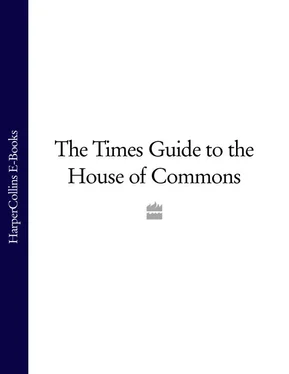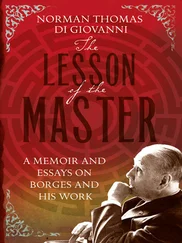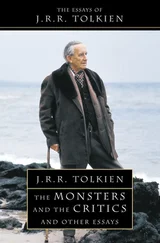Most legislation is put forward by the Government, but in every session a few Bills sponsored by backbench MPs become law. Most of these emerge through a ballot held at the beginning of each session. A total of 13 Fridays in each session are allotted to Private Member’s Bills, which go through the same stages as government Bills, but only seven Fridays are allotted to second readings: the other six are for later stages.
An MP who is lower than seventh will have to put their Bill down for a Friday on which it will not be the first to be debated. This involves astute tactics to judge which Bills will be controversial and therefore face opposition. Debates on important Bills often last most of the Friday sitting (from 9.30am to 2.30pm). Sponsors of Bills have to mobilise support among their fellow MPs since a closure motion to end the debate and have a second reading vote requires the support of 100 MPs, quite a high hurdle for a Friday when many MPs like to be back in their constituencies. Without a closure motion, a Bill can be blocked by a single MP shouting, “Object”, in which case the debate is adjourned. The same happens to Bills that have not been debated. In practice, they then have virtually no chance of becoming law.
Bills introduced under this procedure vary enormously in importance, from highly controversial subjects such as hunting and abortion to minor adjustments of existing law. The Government sometimes offers backbenchers high in the ballot fully drafted Bills that have not found a place in the Queen’s Speech programme. Pressure groups and constituents will also bombard MPs with ideas.
Another way for a backbencher to introduce legislation is under the ten-minute rule, which allows an MP the chance to make a brief speech in favour of introducing a Bill. Another MP can speak against and the proposal can then be voted upon. Even if successful, however, the Bill then has to take its chance for a second reading on a Friday. In practice, most ten-minute Bill debates, held in prime time twice a week after Question Time and any statements, offer a chance for an MP to get publicity for an issue. Bills can be introduced without debate by any backbench MP but they also have to compete for time on Fridays coming after the ballot bills. So they have very little chance of becoming law unless they are uncontroversial.
It is a commonplace that the chamber of the Commons is not what it was. Debates are no longer reported in the press and most are poorly attended, but that is partly because there are now many other ways in which MPs can raise issues. The introduction of Westminster Hall as a secondary chamber has taken some of the pressure off the floor of the Commons. Westminster Hall holds debates from Tuesdays to Thursdays on constituency issues as well as national policy questions, with time regularly allocated for debates on select committee reports. In each case, a minister has to be present to give the government’s response to either a narrow grievance or a broader policy issue.
Question Time, traditionally seen as the epitome of adversarial politics, has changed in a number of largely unappreciated ways. Each departmental Question Time now has a period for topical questions asked without any prior notice to the minister, while there is also a reduced notice period for tabling oral questions. MPs also table more written questions. Since 1997 Prime Minister’s Questions has been a 30-minute session each Wednesday, later moving to noon, rather than two 15-minute sessions at 3.15pm on Tuesday and Thursday.
That has also reflected a series of changes in the timing of the parliamentary day. Monday and Tuesday sessions now begin at 2.30pm and last until between 10.30pm and 11pm, depending on the number of divisions at the end of the main business. The Wednesday session starts at 11.30am and ends at about 7.30pm; the Thursday session begins at 10.30am and ends at 6.30pm; and the much less frequent Friday sessions start at 9.30am and end by 3pm. This has had the effect of concentrating the parliamentary week from Monday evening until, usually, Wednesday early evening, and only occasionally Thursday.
John Bercow, elected as Speaker in June 2009, and reelected in May 2010, has made a priority of strengthening the chamber and empowering the backbench MP. He has sought to speed up parliamentary business and ensure that more questions are asked of ministers. He has also allowed many more urgent questions, roughly one a sitting week compared with two in the 12 months before his election. Urgent questions allow any member to seek to compel a minister to come to the Commons to address an issue of importance. This has put pressure on the Government to volunteer statements of its own.
In each parliamentary session, the opposition parties are given the right to initiate debates on 20 sitting days. These days are allocated according to the strength of the parties in the Commons, to give the smaller groups such as the Scottish and Welsh nationalists and the Democratic Unionists a chance to have debates. The timing of such debate is in the hands of the Government but the subject for debate is entirely determined by the opposition party. The topics are normally urgent and controversial issues where the Opposition wishes to challenge or embarrass the Government.
These set-piece debates attract little media attention and often few MPs are in the chamber even for the opening or closing speeches. There have been suggestions in the past few years that the Opposition might exchange some of their time for shorter and more topical debates just after Question Time when a minister has to justify their policy and decisions. This possibility is likely to be explored in the current Parliament when a backbnech businss committee is set up to allocate time for non-government business.
Direct public involvement
The Commons has been slow to give voters a greater direct say. Proposals for direct e-petitions have been accepted in principle but nothing has been done to implement them, partly because of a lack of political will. The Wright committee made only vague suggestions for a new agenda initiative whereby a proposal attracting a certain amount of support would trigger a debate. There are two related, but separate, issues here: first, agenda-setting petitions that could trigger debates on a topic or even a Bill (although not binding MPs on how they should vote); secondly, more general e-petitions, as adopted in the Scottish Parliament, where members of the public can raise anything from individual cases of maladministration and local grievances to broader public policy problems requiring fresh legislation.
Any discussion of Parliament is complicated by the multiple loyalties of MPs: to their constituents, to their parties (locally and nationally) and to the House of Commons. That is partly because, unlike the United States, we do not have a separation of powers. So MPs have loyalties to either support or oppose the government of the day, which can conflict with or supersede their more parliamentary roles on, for example, select committees. This need not, and did not, prevent committees with a Labour majority in the last Parliament from publishing critical reports on the Brown Government’s policies and performance. It is all a question of balance.
Peter Riddell is the author of six books on British politics, including two on Parliament. He has chaired the Hansard Society, a non-partisan charity for promoting understanding of Parliament, and is a Senior Fellow of the Institute for Government.
New intake foots bill for the old
Sam Coates
Читать дальше












